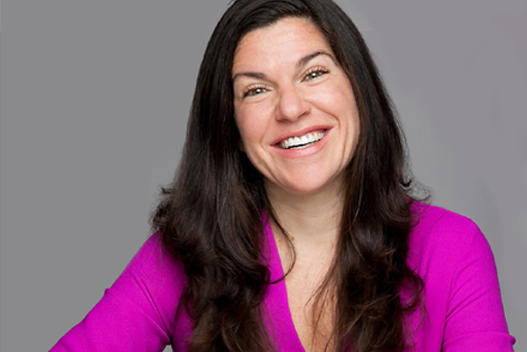The Dawn of a New Healing Era
We're on the edge of a big change in how we think about health and healing. For a long time, we've mostly focused on treating symptoms and fighting diseases after they happen. But now, a new way of thinking is emerging. This new approach looks at health in a broader way and tries to unlock the body's natural ability to heal itself.
This shift challenges us to rethink what we know about health and illness. It asks us to look beyond traditional Western medicine and embrace a more complete approach. By doing this, we open up new possibilities for those of us dealing with long-term and complex illnesses, offering hope where usual methods might not have worked.
In this post, we'll explore this changing landscape of healing. We'll look at new approaches that combine different types of medicine. We'll see how this new way of thinking can change how we approach health, potentially improving the lives of millions of us struggling with ongoing health problems.
The Luminous Healer
Dr. Christine Schaffner is not your average doctor. As a board-certified Naturopathic Doctor, she's on a mission to revolutionize healing. She's helped thousands of people bounce back from chronic and complex illnesses that left other doctors scratching their heads.
But Dr. Schaffner doesn't just work in a clinic. She's spreading her wisdom far and wide through online summits, her popular Spectrum of Health podcast, and a network of Immanence Health clinics. Her secret weapon? Going beyond biological medicine. She pulls from all systems of medicine and healing practices, like a chef creating the perfect recipe for wellness. Her goal? To help patients not just recover, but to shine their brightest light.

Dr. Schaffner's journey began at the University of Virginia, where she studied Pre-medicine and Psychology. She then earned her Doctorate at Bastyr University. Now, armed with her diverse skills and her unique EECO methodology, she's become a beacon of hope for patients worldwide. People travel across the globe to work with her, seeking to unravel the mysteries of their complex illnesses and reclaim their health.
The Limits of Regular Medicine
Before we dive into the new approach, it's important to understand where it comes from. Modern Western medicine has made great progress in treating sudden illnesses and infectious diseases. Its focus on scientific methods has saved many lives and made life better for lots of us.
However, when it comes to long-term and complex illnesses, regular medicine often struggles. The approach of treating specific symptoms or organs doesn't always work for complicated health issues. Those of us with conditions like chronic fatigue syndrome, autoimmune disorders, or long-term pain often find themselves going from one specialist to another, getting treatments that address symptoms but not the root causes.

Also, the focus on using drugs, while sometimes necessary, can lead to just managing symptoms rather than true healing. This approach often misses how different parts of the body are connected and how our lifestyle, environment, and emotions can affect our health.
The New Approach: Holistic and Integrative Healing
The new healing approach looks at things differently. Instead of seeing the body as separate systems, it sees it as a connected whole. This holistic view considers not just physical symptoms, but also emotional, mental, and even spiritual aspects of a person's life.
Biological Medicine: Unlocking the Body's Healing Power
At the heart of this new approach is biological medicine. This tries to understand and support the body's own healing abilities. Instead of just stopping symptoms, biological medicine aims to find and address the root causes of illness, whether they're lack of nutrients, toxins in the environment, or long-term infections.
Doctors using biological medicine often use advanced tests to get a full picture of a patient's health. This might include genetic testing, looking at gut bacteria, and checking cell health. With this detailed information, they can create personalized treatment plans that support the body's natural healing processes.

Combining Old Wisdom and New Science
Another key part of the new healing approach is combining ancient healing traditions with modern science. Practices like acupuncture, herbal medicine, and meditation, which have been used for thousands of years in various cultures, are being studied and included in holistic treatment plans.
This combination allows for a more complete approach to health. For example, while a regular doctor might give medicine for high blood pressure, a doctor using this new approach might combine that with changes in diet, stress-reduction techniques, and herbal supplements to address the problem from multiple angles.
New Therapies in the New Approach
The shift in healing approaches has also opened the door to new therapies that go beyond regular medicine. These new approaches often try to boost the body's natural healing abilities or address health issues at a deeper level.

Regenerative Medicine
One exciting area is regenerative medicine. This focuses on repairing or replacing damaged tissues and organs. Techniques like stem cell therapy and platelet-rich plasma (PRP) treatments are showing promise in treating a wide range of conditions, from joint injuries to brain diseases.
Energy Medicine
Another area gaining attention is energy medicine. While some doubt it, practices like Reiki and therapeutic touch are being studied for their potential to promote healing. These approaches are based on the idea that imbalances in the body's energy can contribute to illness, and that fixing these imbalances can support health.
Mind-Body Medicine
The new healing approach also emphasizes the connection between mind and body. Mind-body medicine techniques, such as biofeedback, guided imagery, and hypnotherapy, are being used to address various health issues. These practices recognize the strong influence our thoughts and emotions can have on our physical health.
Challenges and Debates
While the new approach to healing offers exciting possibilities, it also faces challenges and debates. Let's look at some of these issues in more detail:
The Evidence Problem
Many holistic treatments haven't been studied as thoroughly as traditional medicines. This makes some doctors hesitant to recommend them. They worry about using treatments that haven't been proven effective through rigorous scientific studies.
It's often harder to study holistic treatments using standard scientific methods. These treatments often involve multiple factors and personalized approaches, which don't fit well into typical clinical trials. This makes it challenging to gather the kind of evidence that the medical community typically relies on.

Regulation and Standardization Concerns
There are also concerns about regulating and standardizing these practices. This is important for ensuring safety and quality in healthcare.
Practitioners of alternative therapies may have very different levels of training. Unlike medical doctors, who all go through standardized education, the training for alternative therapies can vary a lot. This makes it hard for patients to know what to expect.
Without standard regulations, it's harder to control the quality of treatments and products used in alternative medicine. This can lead to inconsistent results and potential safety risks.

Resistance from Traditional Medical Community
Many doctors trained in conventional medicine are skeptical of treatments that don't fit into their understanding of health and disease. They may be hesitant to recommend or support these alternative methods.
Some medical professionals worry that patients might choose alternative treatments instead of proven medical interventions, potentially putting their health at risk. This concern can create tension between conventional and alternative healthcare providers.
Despite these challenges, supporters argue that the potential benefits of this new approach far outweigh the drawbacks. They point to many success stories and growing research supporting various integrative and holistic practices. As we continue to explore these new approaches to healing, it's important to keep an open mind while also addressing these concerns.
The Case for Holistic Healing
Despite these challenges, supporters argue that the potential benefits of this new approach far outweigh the drawbacks.
Success Stories
Many report significant improvements in their health after trying holistic approaches, especially for chronic conditions that didn't respond well to conventional treatments.
Growing Research
While more studies are needed, there is a growing body of research supporting various integrative and holistic practices. This is helping to bridge the gap between alternative and conventional medicine.

Patient Satisfaction
Many patients appreciate the personalized attention and comprehensive approach of holistic healing. They feel more involved in their healthcare and empowered to take charge of their wellbeing.
Addressing Gaps in Conventional Care
Holistic approaches often address aspects of health that conventional medicine might overlook, such as the impact of stress, diet, and lifestyle on overall health.
As we continue to explore and debate these new approaches to healing, it's important to keep an open mind while also maintaining a critical perspective. The future of healthcare likely lies in finding a balance between the best of conventional and alternative medicine.
Taking Responsibility for Your Health
One big shift in the new healing approach is the focus on personal responsibility for health. While regular medicine often sees the patient as passively receiving treatment, the holistic approach encourages active participation in the healing process.
This might involve making big lifestyle changes, like adopting a new diet, exercising regularly, or practicing stress-reduction techniques. It also requires patients to be more involved in their health decisions, often needing a deeper understanding of their own bodies and what affects their health.

While this level of involvement can be empowering for many, it also presents challenges. It requires time, effort, and often a willingness to try new things. However, supporters of this approach say that this investment in one's health can lead to better, long-lasting results.
THE FUTURE OF HEALING
As we look to the future, it's clear that healing is changing. While regular medicine will continue to play a crucial role, especially in emergency care, the integration of holistic and alternative approaches is likely to grow.
We might see a future where doctors routinely consider a patient's emotional wellbeing along with their physical symptoms, where treatment plans include both medicines and lifestyle changes, and where ancient healing wisdom is backed up by modern scientific research.

The TAKEAWAY
The paradigm shift towards a more holistic, integrative approach to healing is a fundamental reimagining of what health and wellbeing mean in our modern world. This shift challenges us to transcend the limitations of symptom management and quick fixes, urging us to dive deeper into the complex interplay of factors that influence our health. By addressing root causes and harnessing our body's innate healing capabilities, we're not just treating illness - we're fostering vitality and resilience at every level of our being.
This evolution in healing offers a beacon of hope for those grappling with chronic and complex health issues that have resisted conventional treatments. It acknowledges the uniqueness of our individual health journey and provides a diverse toolkit of healing modalities. More than that, it represents a philosophical shift that empowers us to become active participants in our health narratives. This approach recognizes that true healing is a multifaceted process, encompassing not just physical symptoms, but also emotional wellbeing, mental clarity, social connections, and even our sense of purpose and spiritual fulfillment.

As we navigate this evolving landscape of health and medicine, we're called upon to cultivate a delicate balance of open-mindedness and critical thinking. This means being receptive to new ideas and ancient wisdom alike, while also applying rigorous scrutiny to ensure safety and efficacy. The future of healthcare lies not in choosing between conventional and alternative approaches, but in forging a new path that integrates the best of both worlds. We have the potential to create a healthcare system that truly honors the complexity of human health - one that nurtures wellness in its fullest sense. This journey towards integrative health is a collective shift in consciousness that has the power to transform how we heal...


